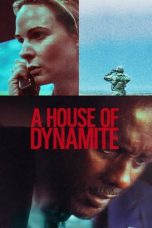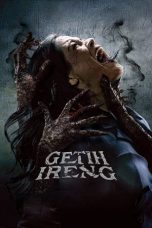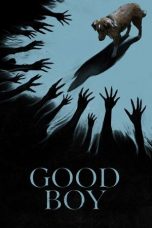Psycho (1960) – A Masterclass in Suspense and Horror
Introduction
“Psycho,” directed by Alfred Hitchcock and released in 1960, is a landmark film in the horror genre. Starring Anthony Perkins, Janet Leigh, Vera Miles, and John Gavin, this psychological thriller is based on the novel by Robert Bloch. “Psycho” is renowned for its groundbreaking narrative, iconic scenes, and Hitchcock’s masterful direction. This review explores the film’s plot, performances, thematic elements, and streaming availability in the United States.
Plot and Structure
The film opens with Marion Crane (Janet Leigh), a secretary who steals $40,000 from her employer and flees, hoping to start a new life with her boyfriend, Sam Loomis (John Gavin). While on the run, Marion checks into the secluded Bates Motel, run by the shy and nervous Norman Bates (Anthony Perkins). What follows is a series of shocking and suspenseful events that reveal dark secrets and unexpected twists.
“Psycho” is structured to subvert audience expectations, particularly with its infamous shower scene, which occurs about halfway through the film. This scene not only shocks viewers but also shifts the narrative focus from Marion to Norman and his unsettling relationship with his mother. The film’s pacing and Hitchcock’s use of suspense keep viewers on edge, making “Psycho” a gripping and unpredictable experience.
Performance Highlights
Anthony Perkins delivers an unforgettable performance as Norman Bates. His portrayal of the awkward and seemingly harmless motel owner, who harbors a sinister secret, is both chilling and sympathetic. Perkins’ ability to convey Norman’s complexity and inner turmoil adds depth to the character and enhances the film’s psychological tension.
Janet Leigh’s performance as Marion Crane is equally compelling. Leigh effectively captures Marion’s desperation and fear, making her character’s plight relatable and her ultimate fate shocking. Leigh’s portrayal earned her a Golden Globe and an Academy Award nomination, cementing her place in cinematic history.
Vera Miles and John Gavin also deliver strong performances as Marion’s sister, Lila, and her boyfriend, Sam. Their determination to uncover the truth about Marion’s disappearance drives the latter half of the film and adds to the overall suspense.
Thematic Depth
“Psycho” delves into themes of identity, guilt, and the duality of human nature. Norman Bates’ character embodies the struggle between his public persona and his hidden, darker self. The film explores how trauma and repression can lead to a fractured psyche, as evidenced by Norman’s relationship with his domineering mother.
The film also challenges societal norms and moral expectations. Marion’s decision to steal the money and her subsequent fate serve as a commentary on the consequences of transgressing social boundaries. Hitchcock’s use of the voyeuristic perspective, particularly in the iconic shower scene, forces viewers to confront their own complicity in watching and judging the characters’ actions.
Cinematic Excellence
Alfred Hitchcock’s direction in “Psycho” is a masterclass in suspense and visual storytelling. The film’s black-and-white cinematography, by John L. Russell, creates a stark and moody atmosphere that heightens the tension. The use of shadows and tight framing adds to the sense of claustrophobia and unease.
One of the most memorable aspects of “Psycho” is Bernard Herrmann’s haunting score. The screeching violins in the shower scene have become synonymous with terror and are a testament to the power of music in enhancing cinematic horror. Herrmann’s score complements Hitchcock’s direction, amplifying the film’s suspense and emotional impact.
Cultural Impact
“Psycho” has had a profound and lasting impact on both the horror genre and popular culture. It broke new ground with its depiction of violence and psychological horror, influencing countless films and filmmakers. The shower scene, in particular, is one of the most analyzed and referenced moments in cinematic history.
The film also challenged the Motion Picture Production Code and censorship norms of the time, pushing the boundaries of what was considered acceptable on screen. Its success paved the way for more mature and daring content in Hollywood.
Streaming and Availability
For those looking to experience “Psycho,” several streaming options are available in the United States:
- Amazon Prime Video: The film can be rented or purchased on Amazon Prime Video.
- Apple TV: Available for rent or purchase on Apple TV.
- Google Play Movies & TV: The movie can be rented or bought on Google Play, accessible on various devices.
- Vudu: Available for rent or purchase on Vudu.
- YouTube Movies: Rent or buy the movie directly from YouTube, ensuring accessibility from any internet-enabled device.
- Peacock: Available for streaming for Peacock subscribers.
Conclusion
“Psycho” is a timeless classic that continues to captivate and terrify audiences. Alfred Hitchcock’s direction, combined with standout performances from Anthony Perkins and Janet Leigh, creates a film that is both psychologically complex and viscerally thrilling. Its innovative narrative structure, iconic scenes, and exploration of dark themes make “Psycho” a masterpiece of horror cinema. With various streaming options available, there is no better time to revisit this seminal work or experience it for the first time. Dive into “Psycho” and witness a film that redefined a genre and left an indelible mark on the history of cinema.
















